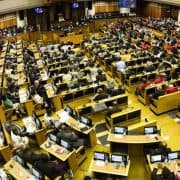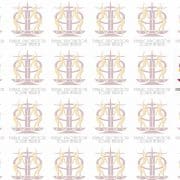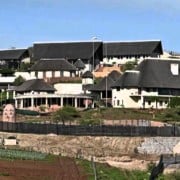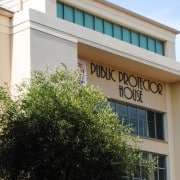|
Getting your Trinity Audio player ready...
|
EDITORIAL
First published in Business Day
Protector selection too important to be left to MPs
The full list of nominees to replace Public Protector Thuli Madonsela will be announced on Tuesday.
But the fact that 72 nominations have been received is a welcome reflection of the degree of interest and engagement in this very important appointment.
It is an exciting instance, too, of the kind of participatory democracy that South Africa’s Constitution and much of its legislation provides for but which we have seldom seen.
The process of interviewing and selecting a candidate is yet to come but it will, for the first time, be under much scrutiny. And it will, ideally, provide a template for the appointments of other institutions, which, like the public protector’s office, need people with integrity and independence.
The Constitution requires that the public protector be selected by an ad hoc parliamentary committee with proportional representation of governing and opposition parties. Other institutions, such as the auditor-general, Human Rights Commission and head of the Independent Electoral Commission of SA, have the same or similar procedures.
There is nothing new about the process itself. But this time it has attracted a great deal of attention and participation. That is in large part thanks to Madonsela herself, who has built up the stature of the office. She has ensured it lives up to its role in providing checks and balances to those in power at a time of rampant corruption and amid allegations of state capture.
The degree of public interest also reflects a new appreciation of the importance of independent institutions. Madonsela’s findings on Nkandla and the South African Broadcasting Corporation’s chief operating officer, Hlaudi Motsoeneng, epitomised what the role of the public protector should be amid much political pressure and vilification.
CW’s Bua Mzansi campaign bears fruit
But as far as transparency over the selection of her successor goes, much of the credit must go to Corruption Watch. It has ensured that the appointment is as public as possible.
Corruption Watch conducted an extensive campaign to educate South Africa on what the public protector’s office does and why it matters. It surveyed MPs, members of the public and the staff of the protector’s office on the attributes a candidate needs.
It has also engaged extensively with the chairwoman of the ad hoc parliamentary committee to push for the process to be as transparent and public as possible, ensuring that MPs account for their choices. That the chairwoman has proved receptive and independent is to her credit, and bodes well for the process.
The interviews will be televised, at the request of Corruption Watch.
Members of the public will be able to send in questions. Corruption Watch has also set up a voting app that will enable citizens to express their opinion on who should be appointed.
Important public appointments should be transparent
It is bound to be interesting. It will also be very important. Ratings agencies and investors are watching South Africa closely with an eye to the integrity of its institutions and the new public protector will be a key signal — not only for investors but for citizens — of whether Parliament and the executive are still willing to safeguard key institutions.
Appointments such as those of the auditor-general could easily be as public a process — and should be.
Arguably, the heads of institutions such as the South African Revenue Service or National Prosecuting Authority should also follow public and accountable processes, even though that’s not necessarily in the legislation.
Reports indicate that there are some nominees of stature and integrity on the list for the public protector’s job, which is an encouraging sign.
Madonsela has given gravitas to the office — her successor should be worthy of inheriting it.








